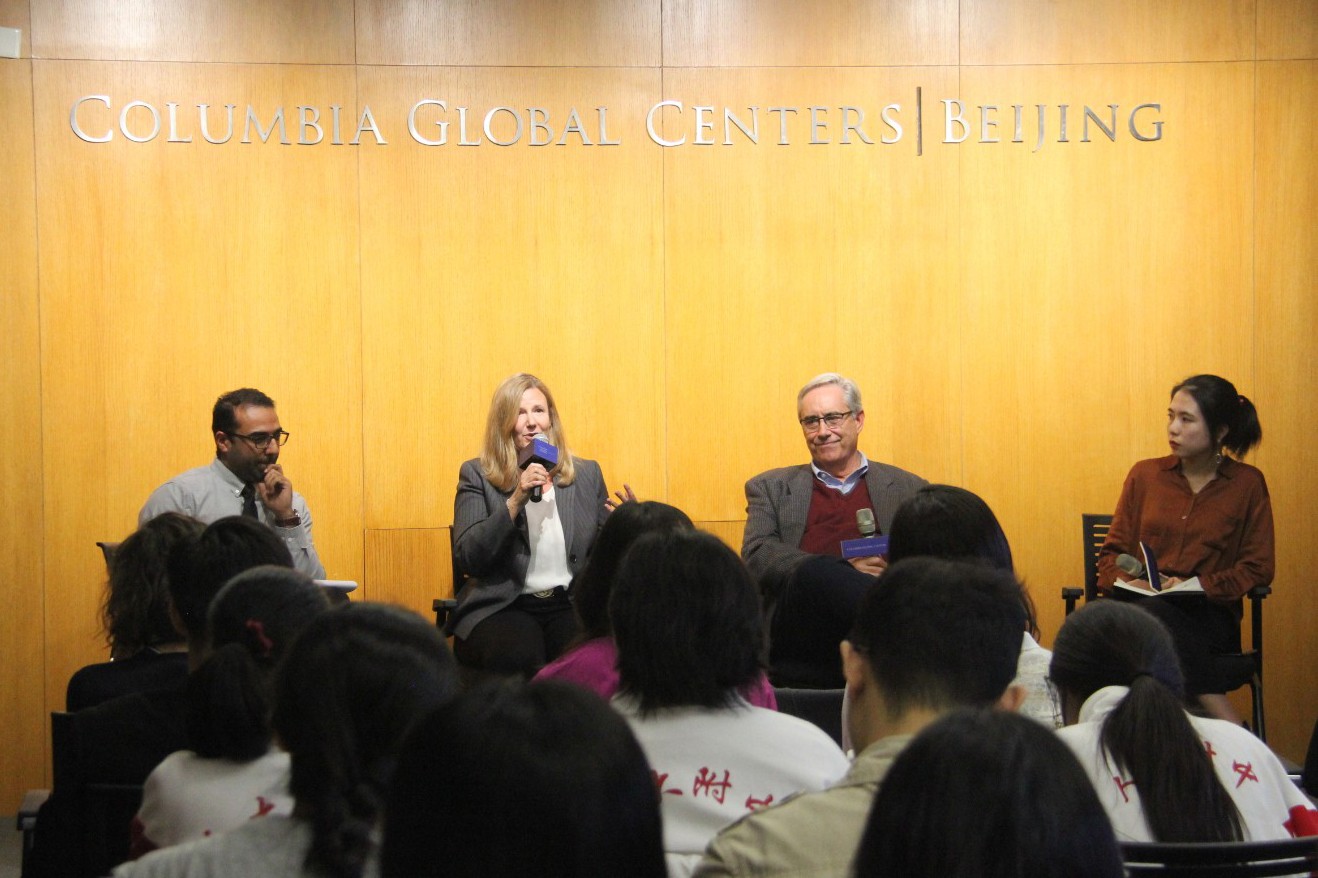Panelists included Angela Curry, Director of AP Program at RDFZ with 17-year experience in international education; Richard H. Gehman, Founding Head of UCCG School in Beijing, who served as a school principal in the U.S. for over 30 years; and Xinyue GUO TC ’17, Founder of Heart Space and President of Xi'an Federation of Innovation and maker education.
During the discussion, three panelists thoroughly addressed four issues: 1) whether Chinese society at large ready to adopt and endorse the rising movement of alternative approaches in education, despite its long-lasting tradition of education system; 2) how to improve vocational abilities of Chinese educators, especially their performance in class; 3) what makes a good parenting and examples; and 4) whether Chinese leadership will deliver on its promise of curriculum and assessment reforms.

